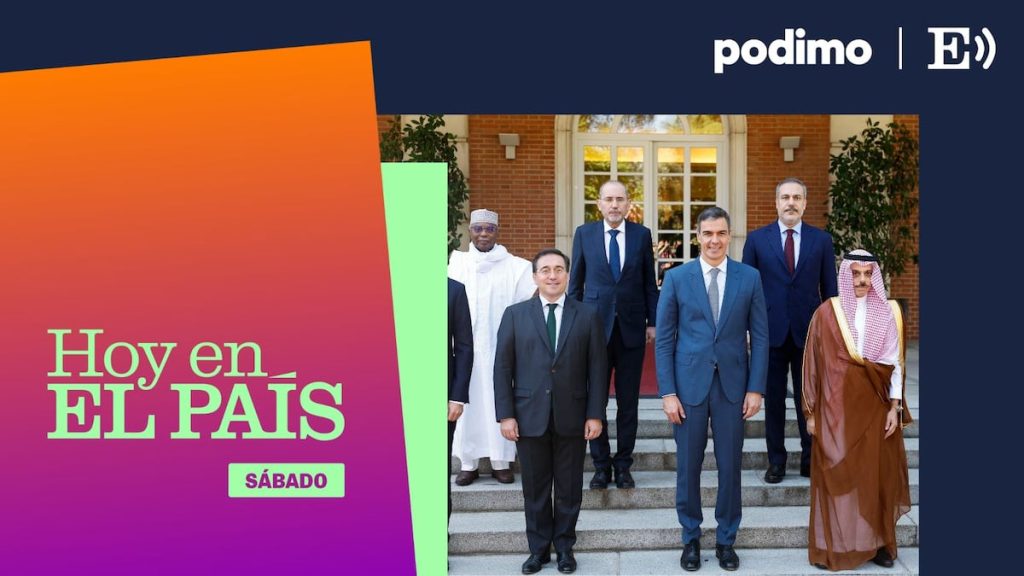The President of the Government meets with the Palestinian Prime Minister, Mohamed Mustafa, and several Foreign Ministers from Arab countries in the Arab Contact Group for Gaza. During the same week that Israel was bombing Rafah, Spanish President Pedro Sánchez announced the recognition of the Palestinian state. This decision has raised questions about how Israeli Prime Minister Benjamin Netanyahu will react to such announcements. Additionally, a law granting amnesty was approved with 177 votes in favor and 172 against. The details of when and in what cases this law will be applied are still unclear. In the United States, former President Donald Trump, who is also a candidate for the upcoming elections, has been convicted on 34 charges related to the Stormy Daniels case. The future of his legal and political career remains uncertain.
The approval of the amnesty law with a narrow margin of votes raises concerns about its implementation and potential impact. The recognition of the Palestinian state by Spain also introduces a new dynamic in the conflict with Israel, and the reaction of Prime Minister Netanyahu will be closely watched. The legal challenges facing former President Trump in the United States have implications for his political future, particularly as he remains a candidate in the upcoming elections. These developments highlight the complex and interconnected nature of international relations and the political landscape.
President Pedro Sánchez’s decision to recognize the Palestinian state comes at a critical time, as tensions in the region are high due to the ongoing conflict in Gaza. The meeting with the Palestinian Prime Minister and other Arab Foreign Ministers signifies Spain’s commitment to addressing the humanitarian crisis in Gaza and supporting efforts towards a peaceful resolution. The approval of the amnesty law raises questions about justice and accountability, as well as the implications for those affected by past actions. The situation in Israel and the United States remains fluid, with potential implications for regional and global stability.
The recognition of the Palestinian state by Spain reflects a growing international consensus in support of Palestinian rights and statehood. The reaction of Israeli Prime Minister Netanyahu to this announcement will be important in shaping future relations between the two countries. The approval of the amnesty law highlights the challenges of achieving reconciliation and moving forward from past conflicts. Former President Trump’s legal troubles add a layer of complexity to the political landscape in the United States, with potential ramifications for the upcoming elections. These developments underscore the need for diplomacy, dialogue, and respect for human rights in addressing global challenges.
The recognition of the Palestinian state by Spain and the approval of the amnesty law underscore the importance of international cooperation in resolving conflicts and promoting peace. The meeting between President Sánchez and the Palestinian Prime Minister signals Spain’s commitment to supporting efforts towards a just and lasting resolution in the region. The implications of these decisions for regional stability and global security are significant, and the response of key players, such as Israeli Prime Minister Netanyahu and former President Trump, will shape future developments. The complex and interconnected nature of these issues highlights the need for diplomatic engagement, political dialogue, and respect for human rights in addressing global challenges.
In conclusion, the recent developments in Spain, Israel, and the United States highlight the complex and dynamic nature of international relations, politics, and conflict resolution. The decisions made by leaders in these countries have implications for regional stability, global security, and the protection of human rights. The recognition of the Palestinian state by Spain, the approval of the amnesty law, and the legal troubles facing former President Trump all underscore the challenges and opportunities facing the international community in addressing complex and interconnected issues. Diplomacy, dialogue, and cooperation are essential for finding sustainable solutions and promoting peace in a rapidly changing world.


